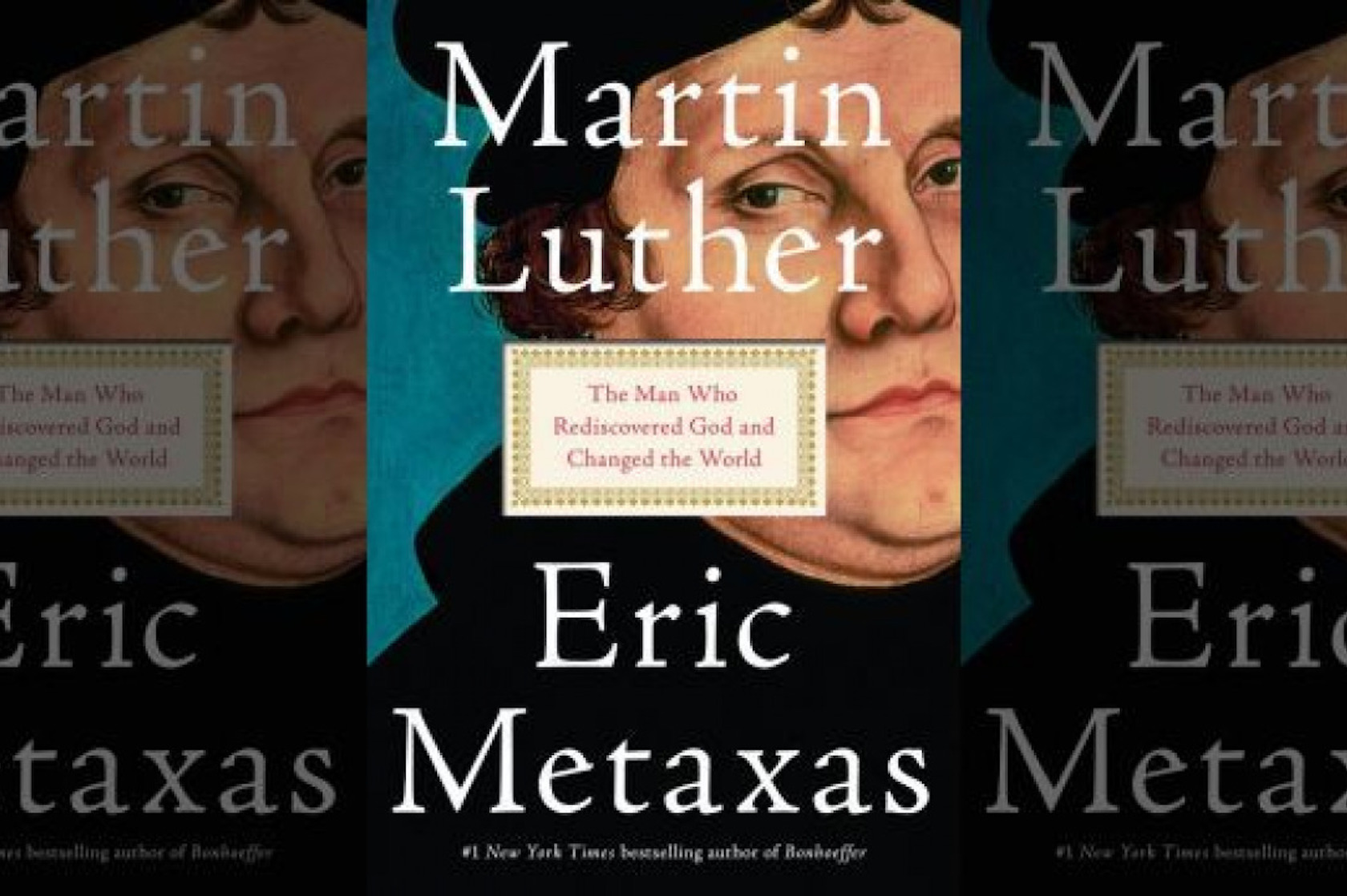Washington Times: A 16th-Century Revolutionary and His Legacy
December 25, 2017

Diana Banister of the Washington Times offers a review of Martin Luther: The Man Who Rediscovered God and Changed the World, noting that “Mr. Metaxas has a knack for capturing the heart and mind of his subjects… a deep and thoughtful writer with much to teach the world.”
This article was originally published in the Washington Times; to read the article on their website, click here.
A few years ago, I was shocked to learn that some mainline Protestant denominations have Reformation Day celebrations on Oct. 31 in honor of Martin Luther’s nailing of the “Ninety-five Theses” to the door of a church in Wittenberg, Germany in 1517. As a convert to the Catholic faith, it seemed odd to celebrate the tearing asunder of the unity that was the church at the time.
This year marked the 500th anniversary of that fateful day when a Catholic priest aired his grievances with the church in public. Eric Metaxas, renowned author of “Bonhoeffer,” “If You Can Keep It,” “Amazing Grace” and “Miracles” has captured, in vivid detail, the lead-up to and the aftermath of this fateful event with “Martin Luther: The Man Who Rediscovered God and Changed the World.”
Mr. Metaxas has a knack for capturing the heart and mind of his subjects, whether it was William Wilberforce in his battle to end the slave trade in England or Dietrich Bonhoeffer and his return to Germany with a mission to sabotage Hitler and the Third Reich.
With this same tenacity Mr. Metaxas dissects the life of the 16th-century monk who transformed Christianity and the Western world. The work itself is a tremendous undertaking, with 450 pages of text, 15 pages of index, and 9 pages of endnotes.
Mr. Metaxas tackles a very complex and deeply introspective, some say troubled, man with enthusiasm and a clear attempt to right all the wrongs of previous biographies, many written by Catholic scholars not positively inclined toward his revolutionary acts against Rome. All agree about Luther’s impact on Christendom and that he did not plan for what would take place in the aftermath of his actions.
Mr. Metaxas goes to great lengths to point out the worthiness of Luther’s cause. His biggest concern was with indulgences, giving absolution to people for a price. However, the popes of the Middle Ages had scandalized the church in many ways as well. No doubt, the stain of the time-period set the revolution on a course to dismantle the grip the papacy had on the state and the Christian world.
The premise that Luther rediscovered God, however, may be a bit of a stretch. The book delves briefly into Luther’s philosophy, a follower of Duns Scotus and William of Ockham, who, although considered Scholastics, were different than Thomas Aquinas. Luther and his mentors had a problem with Aristotle. As Mr. Metaxas points out, they followed Plato and Augustine and thus the tangibles. Aquinas’ focus on faith and reason and proofs for the existence of God, was anathema to them. They were Nominalists, and believed that there could be no absolutes, just the will.
This is where many Catholic scholars find the root of the problem. If there are no absolutes, then Luther and the Protestant followers after him, became relativists and could take issue with any doctrinal concern that came to mind, which of course has been the result of Luther’s actions. In the United States alone there are now more than 30,000 Protestant denominations.
“He wanted real answers,” writes Mr. Metaxas about Luther, “and he wanted to read the Bible in such a way that he could get those answers.” Clearly Luther’s emphasis on the Bible transformed the church at the time. As history played out the Gutenberg press made it possible for his message to flourish. This may have been his most significant contribution.
Luther’s “Theses” reflect a man who was consumed by the Sacrament of Penance or confession, which he, as a young man, engaged in daily. Scholars indicate he spent an hour a day in the confessional. It is hard to imagine anyone sinning enough in one day to warrant this, especially a priest, but Luther was extremely scrupulous. His 95 points were a dissertation on the importance of and pure theology behind the Sacrament and reiterating, through his reasoned arguments, that a priest who requires money to grant forgiveness of sins was anathema to its truest form.
Where Mr. Metaxas concludes that Martin Luther created a world of “variegated pluralism” allowing for dissent and the advent of religious freedom may be true. However, suggesting that Luther set the course for “democracy, self-government and liberty” to flourish is something the reader will have to determine.
Mr. Metaxas is not a Catholic basher by any stretch, and he makes it clear that he works closely with Catholics in his work as a syndicated radio host and founder of “Socrates in the City,” the acclaimed series of conversations be hosts in New York City on “life, God and other small topics.”
The beauty of Mr. Metaxas‘ works is that he is undoubtedly seeking the truth about history and philosophy, freedom and man’s relationship with God and to the state. His intent is always to enlighten the reader about the impact one man can have on the world around him. Many parts of his book have not been unearthed in previous works on Luther and his conclusions about the 16th-entury revolutionary are uniquely Metaxas, a deep and thoughtful writer with much to teach the world.
Diana L. Banister is president of Shirley & Banister Public Affairs.
Copyright © 2018 The Washington Times, LLC.
